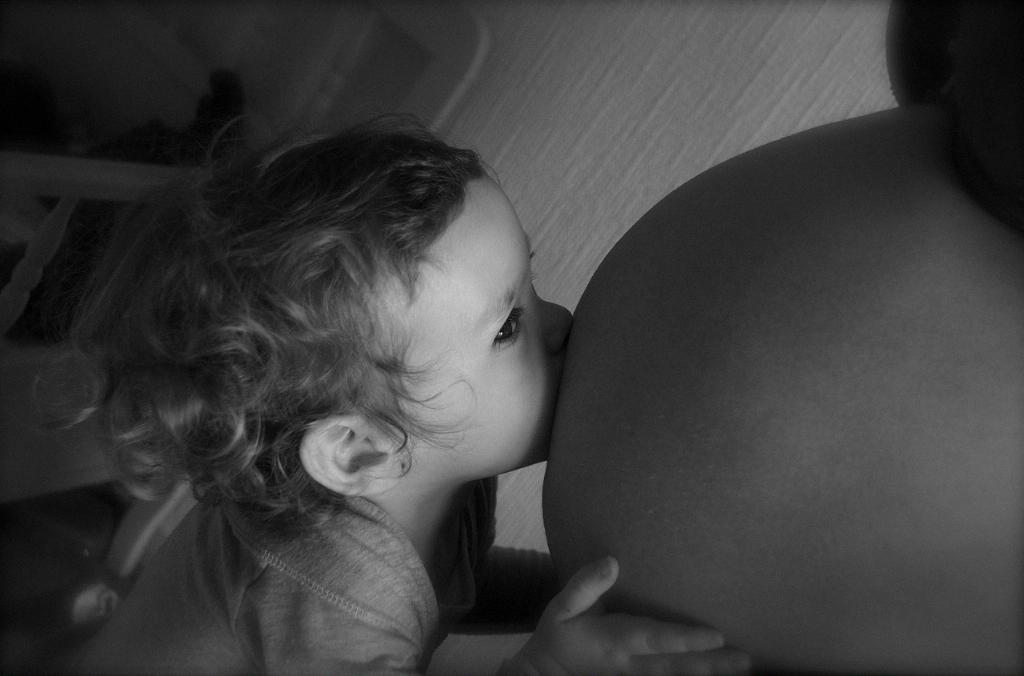When it comes to the incredible journey of pregnancy, a woman’s body experiences a multitude of changes to accommodate the growth and development of a new life. It’s a miraculous process that involves transformation in various body parts to create a nurturing environment for the baby to thrive.
The Heart: Your Body’s Steadfast Performer
One significant change that occurs during pregnancy is the increase in your heartbeat. Your heart works tirelessly to pump more blood to support both you and your baby, resulting in a faster heart rate. This heightened activity is essential for ensuring that an adequate supply of nutrients and oxygen reaches the developing fetus.
The Lungs: A Source of Vital Oxygen
Simultaneously, your breathing rate may also increase during pregnancy. The body adjusts to accommodate the increased oxygen demand, ensuring that both you and your baby receive sufficient oxygen to support the metabolic needs of both individuals.
The Breasts: Nurturing Tools for Motherhood
Another noticeable change that many women experience is the tenderness, enlargement, and heaviness of their breasts. These transformations are the body’s way of preparing for lactation. The mammary glands undergo significant changes in preparation for breastfeeding once the baby is born.
The Bladder: Feeling the Pressure
As the uterus expands to accommodate the growing fetus, it exerts pressure on the bladder. This pressure often leads to an increased frequency of urination, as the bladder’s capacity is reduced due to the expanding uterus. It’s a common phenomenon experienced by many pregnant women.
The Uterus: The Home for Your Developing Baby
Of course, one of the most significant changes during pregnancy occurs in the uterus itself. The uterus undergoes remarkable growth and adaptation to provide a safe and nurturing environment for the developing baby. This expansion is necessary to accommodate the growing fetus and support its development throughout the pregnancy.
The Skin: Stretching to Accommodate
During pregnancy, the skin undergoes substantial stretching to accommodate the growing belly. This stretching can lead to the development of stretch marks in various areas of the body. While they may fade over time, they are a common reminder of the miraculous changes that the body undergoes during pregnancy.
The Joints: Supporting Your Body’s Transformation
Pregnancy hormones can affect the ligaments and joints in the body, leading to increased flexibility. While this flexibility is essential during childbirth, it can also make some women feel more prone to injuries or discomfort. It’s essential to be mindful of these changes and take care of your body during this transformative period.
The Digestive System: Navigating New Challenges
Many women experience changes in their digestive system during pregnancy. These changes can range from symptoms of nausea and vomiting to heartburn and constipation. Hormonal fluctuations and the growing uterus can impact digestion, causing discomfort for some pregnant individuals.
The Pelvic Floor: A Crucial Support System
Throughout pregnancy, the pelvic floor plays a crucial role in supporting the growing uterus and baby. As the uterus expands, the pelvic floor muscles may come under increased pressure, leading to changes in bladder control or pelvic discomfort. Pelvic floor exercises can help strengthen these muscles and support your body through pregnancy.
The Vascular System: Meeting Increased Demands
Your body’s vascular system undergoes significant changes during pregnancy to meet the increased demands placed on it. The volume of blood circulating in your body increases to support the growing fetus, leading to changes in blood pressure and circulation. These adaptations are crucial for ensuring that both you and your baby receive the necessary nutrients and oxygen.
The Hormonal System: Orchestrating a Symphony of Changes
Hormones play a vital role in orchestrating the myriad changes that occur during pregnancy. From preparing the uterus for implantation to supporting the growth and development of the fetus, hormones regulate various functions in the body to create an optimal environment for pregnancy. These hormonal fluctuations can also influence mood swings and emotional well-being during this transformative period.
The Mind and Emotions: Navigating the Emotional Rollercoaster
Pregnancy is not only a physical journey but also an emotional and mental one. The changes in body parts during pregnancy can be accompanied by a rollercoaster of emotions, from joy and excitement to anxiety and apprehension. It’s essential to prioritize self-care and seek support from loved ones to navigate these emotional changes and embrace the transformative experience of pregnancy.

